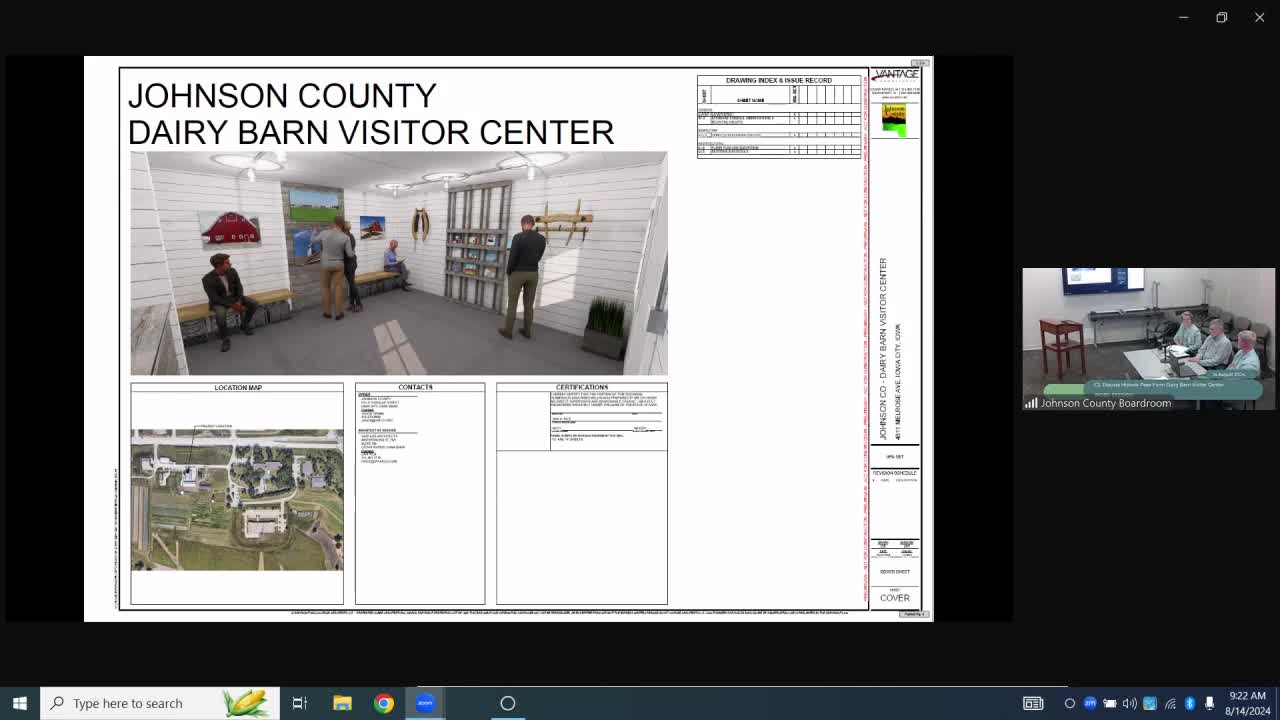Historic Poor Farm Launches Major Community Projects
August 14, 2024 | Johnson County, Iowa
This article was created by AI summarizing key points discussed. AI makes mistakes, so for full details and context, please refer to the video of the full meeting. Please report any errors so we can fix them. Report an error »

During a recent government meeting, officials discussed several key updates regarding projects at the historic Poor Farm, emphasizing ongoing community engagement and environmental initiatives.
The meeting began with a discussion on the oversight of a new equipment storage shed at the Poor Farm, which has triggered the need for a major site plan due to the expansion of commercial space on the property. Axiom Engineering has been engaged to develop the necessary documents, which are currently under review by city staff. An enhancement to the project includes the addition of a biocell to manage stormwater runoff effectively.
In addition to infrastructure developments, the meeting highlighted landscaping improvements at the farm, with Sustainable Landscape Solutions contracted to enhance the area around the asylum and dairy barn. Community volunteers are invited to participate in planting activities scheduled for the following week, fostering local involvement in beautifying the site.
Another significant topic was a rainwater harvesting project funded by a grant from the Iowa Department of Natural Resources. This initiative aims to establish new standards for rainwater harvesting in Iowa, with plans to implement a system at the Poor Farm that will serve as a demonstration for other urban farms. The project is expected to enhance water conservation efforts and support irrigation needs.
The meeting also covered recent community events hosted at the Poor Farm, including a successful community food system conference that attracted over 150 attendees. Participants engaged in tours and discussions about local agriculture, showcasing the farm's role as a vital resource for education and community connection.
Lastly, officials announced a potential mural project for the raised bed gardens along the healing trail, in collaboration with local artists. This initiative aims to enhance the aesthetic appeal of the farm while promoting artistic expression within the community.
Overall, the meeting underscored the Poor Farm's commitment to sustainability, community involvement, and educational outreach, positioning it as a model for local food systems and environmental stewardship in Iowa.
The meeting began with a discussion on the oversight of a new equipment storage shed at the Poor Farm, which has triggered the need for a major site plan due to the expansion of commercial space on the property. Axiom Engineering has been engaged to develop the necessary documents, which are currently under review by city staff. An enhancement to the project includes the addition of a biocell to manage stormwater runoff effectively.
In addition to infrastructure developments, the meeting highlighted landscaping improvements at the farm, with Sustainable Landscape Solutions contracted to enhance the area around the asylum and dairy barn. Community volunteers are invited to participate in planting activities scheduled for the following week, fostering local involvement in beautifying the site.
Another significant topic was a rainwater harvesting project funded by a grant from the Iowa Department of Natural Resources. This initiative aims to establish new standards for rainwater harvesting in Iowa, with plans to implement a system at the Poor Farm that will serve as a demonstration for other urban farms. The project is expected to enhance water conservation efforts and support irrigation needs.
The meeting also covered recent community events hosted at the Poor Farm, including a successful community food system conference that attracted over 150 attendees. Participants engaged in tours and discussions about local agriculture, showcasing the farm's role as a vital resource for education and community connection.
Lastly, officials announced a potential mural project for the raised bed gardens along the healing trail, in collaboration with local artists. This initiative aims to enhance the aesthetic appeal of the farm while promoting artistic expression within the community.
Overall, the meeting underscored the Poor Farm's commitment to sustainability, community involvement, and educational outreach, positioning it as a model for local food systems and environmental stewardship in Iowa.
View full meeting
This article is based on a recent meeting—watch the full video and explore the complete transcript for deeper insights into the discussion.
View full meeting
